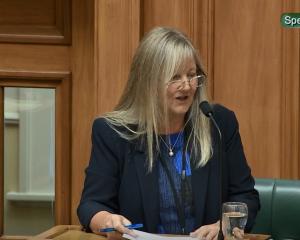The Press Council has upheld the substance of the complaints. (This is a brief outline; for the full Press Council decision, in two parts, please see www.presscouncil.org.nz)
Lisa Finlay, Bronwyn Hayward, Leanne Hermosilla, Josh Hetherington, Rob Stowell, Jasmine Taylor, Giovanni Tiso, Daniel Webster and Julia Woodhall complained that the article breached several Press Council principles.
Key concerns were:
• The Herald columnist, Rachel Glucina, had misrepresented as PR rather than newsgathering the basis on which she was conducting the interview that led to the article (subterfuge).
• The columnist's and her brother's connections with the cafe owners and the columnist's connection with John Key were not disclosed (conflict of interest).
• There was no clear consent from Ms Bailey concerning publication in the Herald.
• The Herald failed to contact Ms Bailey after it became apparent there were concerns about the article prior to publication, dealing only with the cafe owners.
In short, the complaints stated the Herald had failed to act transparently and in good faith with Ms Bailey and had breached professional standards.
In response the Herald, in brief:
• Denied any subterfuge.
• Said if Ms Bailey had been told the interview was for a PR exercise, she had not been told it by the Herald.
• Said the Herald had spoken to the cafe owners in the early evening and while they said they had thought the article was for all media, they "were comfortable with the fact that they would appear in the paper the following day". They were and remained the Herald's intermediary with Ms Bailey, and were supplied with their (and her) quotes so that all could see what would be published the next day.
• Maintained all quotes were correct and in context.
The Press Council cannot rule out the possibility of a genuine misunderstanding in the first instance about the nature of Ms Glucina's approach and the article she proposed to write.
However, once the interview was taking place, the onus was on Ms Glucina as a professional media person to make the position completely clear to all parties, particularly to Ms Bailey, with whom she had had no previous contact, who was in a vulnerable position, and whose interests could well have been in conflict with those of the cafe owners.
Ms Glucina, and the Herald in the later dealings, could not delegate to the cafe owners the obligation to ensure Ms Bailey understood the nature of the proposed article in consenting to the interview. The Herald did not act professionally and with fairness towards Ms Bailey.
The council also finds a breach of the conflict principle in that the Herald did not disclose Ms Glucina's relationship with the management of the cafe.
The Press Council is concerned with maintaining the press in accordance with the highest professional standards. In its view, the Herald, in respect of the Glucina article, has fallen sadly short of those standards.












